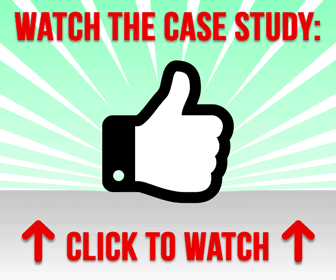Every business needs a website, and localized businesses are no exception.
If you're running the kind of business where geography matters, and you're strictly targeting a local audience, you need website copy and content that attract the right kind of audience.
There isn't necessarily a one-size-fits-all template for this kind of thing.
A bakery is going to have a different target audience, different goals, and a different marketing strategy than a plumbing company.
But with that said, there are some kinds of content that are crucial for laying the right foundation for your ongoing web marketing efforts.
For the most part, local businesses need these kinds of pages:
- Localized landing pages. If your business has more than one location, you'll want landing pages targeted toward each geographic area where you have a presence.
- A store locator page. For businesses with several branches in different places, you can find widgets that help your customers find the nearest location.
- Pages for each product or service that you offer. Create a thorough description for each one, along with images, videos, and customer reviews.
- A strong CTA on each page. Every page on your site needs a call to action (CTA).
In a recent blog post, Moz explains why these pages are so important for a small business.
Store locator pages
For a multi-location businesses (like a restaurant chain), you’ll be creating content for a set of landing pages to represent each of your physical locations, accessed via a top-level menu if you have a few locations, or via a store locator widget if you have many.
These should feature the same types of content a Contact Us page would for a single-location business, and can also include:
- Reviews/testimonials for that location
- Location-specific special offers
- Social media links specific to that location
- Proofs of that location’s local community involvement
- Highlights of staff at that location
- Education about availability of in-store beacons or apps for that location
- Interior photos specific to that location
- A key call-to-action
For help formatting all of this great content sensibly, please read Overcoming Your Fear of Local Landing Pages.
City landing pages
Similar to the multi-location business, the service area business (like a plumber) can also develop a set of customer-centric landing pages.
These pages will represent each of the major towns or cities the business serves, and while they won’t contain a street address if the company lacks a physical location in a given area, they can contain almost everything else a Contact Us page or Store Locator page would, plus:
- Documentation of projects completed in that city (text, photos, video)
- Expert advice specific to consumers in that city, based on characteristics like local laws, weather, terrain, events, or customs
- Showcasing of services provided to recognized brands in that city (“we wash windows at the Marriott Hotel,” etc.)
- Reviews/testimonials from customers in that city
- Proofs of community involvement in that city (events, sponsorships, etc.)
- A key call-to-action
Product/service descriptions
Regardless of business model, all local businesses should devote a unique page of content to each major product or service they offer. These pages can include:
- A thorough text description
- Images
- Answers to documented FAQs
- Price/time quotes
- Technical specs
- Reviews of the service or product
- Videos
- Guarantees
- Differentiation from competitors (awards won, lowest price, environmental standards, lifetime support, etc.)
Calls to action
CTAs are critical local business content, and any website page which lacks one represents a wasted opportunity.
Entrepreneur states that the 3 effective principles of calls to action are visibility, clear/compelling messaging, and careful choice of supporting elements.
For a local business, calls to action on various pages of your website might direct consumers to:
- Come into your location
- Call
- Fill out a form
- Ask a question/make a comment or complaint
- Livechat with a rep
- Sign up for emails/texts or access to offers
- Follow you on social media
- Attend an in-store event/local event
- Leave a review
- Fill out a survey/participate in a poll
Ideally, CTAs should assist users in doing what they want to do in alignment with the actions the business hopes the consumer will take.
Audit your website and implement a targeted CTA on any page currently lacking one.
Need inspiration?
This Hubspot article showcases mainly virtual companies, but the magic of some of the examples should get your brain humming.
You can learn more about how to craft the right kind of content for a local business over at Moz.
CHALLENGE Yourself to Profit!
Free Download: Build Your Profit-Generating Online Business With This Free Blueprint
Sign Up, follow the easy steps and You'll get the tactics, strategies & techniques needed to create your online profit stream. It's free!



